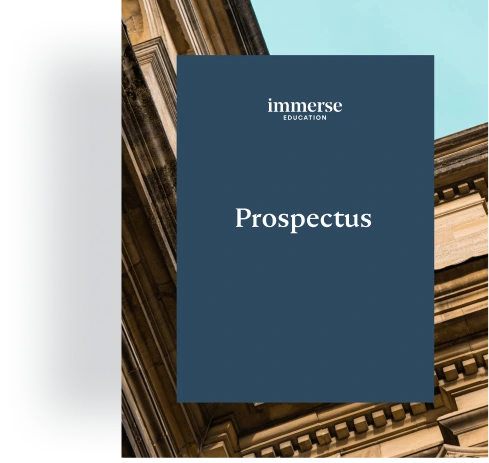What can you do with an English degree? Don’t worry – you have plenty of options! An English graduate can pursue many different career paths, such as a writer, editor, journalist, or teacher. You could also pursue a career in marketing or law.
In this article, you’ll discover the many opportunities available to those with an English degree, so have fun exploring your options!
Digital Copywriter
A digital copywriter writes digital content, such as website articles, social media posts, and email newsletters. They are responsible for creating high-quality and engaging content that will attract and retain readers’ attention.
The responsibilities of a digital copywriter can vary depending on their company’s needs but can typically include:
- Brainstorm topics and ideas for content
- Research information to support ideas
- Write catchy and attention-grabbing headlines
- Edit and proofread submissions
- Collaborate with other members of the team
- Develop a social media strategy
What can you do with an English degree? If you’re interested in writing, editing, and marketing, consider becoming a digital copywriter!
Editorial Assistant
An editorial assistant is a non-fiction publishing position that assists editors. They typically work with their team to ensure they meet all publishing standards. Usual outputs include journals, books, magazines, and other publicity materials.
The responsibilities of an editorial assistant usually include:
- Marketing the book in interviews, articles, and other marketing strategies after publication
- Manage email correspondence with readers and editors
- Coordinate author events, signings, or speeches
- Organise giveaways for subscribers who sign up for free content
- Obtain permission to use materials from other sources
- Collaborate with the production team to ensure the project stays on time and within budget
Do you have excellent English and communication skills? Publishing is an exciting career that combines both writing and marketing skills. If this sounds interesting, consider becoming an editorial assistant!
Related Read: Best UK Universities For English
English Professor
An English professor teaches students how to read, write, and communicate. The English courses professors teach include creative writing, composition, and public speaking.
An English professor’s day-to-day tasks may include:
- Handle student concerns and questions during office hours
- Design lesson plans and gives lectures
- Research and incorporate assignments for each course
- Create exams, quizzes, or lab experiments
- Produce syllabi to guide their students throughout the semester
- Evaluate student work and grade tests, papers, and projects
What can you do with an English Degree? If you have fantastic writing and communication skills and are eager to teach, try out becoming an English professor!
Social Media Manager
A social media manager oversees the company’s social media accounts. It’s a versatile career where you can choose to work as a freelancer or a full-time employee.
A social media manager typically has the following responsibilities:
- Develop a social media strategy
- Create content for social media channels
- Monitor analytics to track progress and success
- Respond to comments and questions
- Manage campaigns to promote client’s brand
- Establish relationships with influencers to increase brand awareness
Do you have a firm grasp of the various social media channels? Social media managers need to have marketing and relationship-building skills. Why not try becoming a social media manager if these things interest you?
Academic Librarian
An academic librarian provides information and research support to students, faculty, and staff at an institution of higher education. They work in various libraries, including public, school, and special libraries.
Here are the usual responsibilities of Academic librarians:
- Guide students, faculty, and staff on what resources to use for research
- Select relevant databases based on the subject of interest or type of information needed
- Perform reference interviews with patrons to determine their needs
- Develop bibliographies and citation styles for students’ research projects
- Maintain the library’s collection, including books, journals, DVDs, etc.
- Stay updated with library developments.
What can you do with an English degree? If you enjoy the academic life of helping students and teachers in the research, you may enjoy being an academic librarian!
And, if you’re really interested in literature, then check out our best UK universities for English Literature guide.
Education Consultant
An education consultant assists schools and universities design their curriculum to enhance their students’ learning. Depending on their experience, they may choose to work in specific fields. Some include career advice, technical education support, and teacher training and development.
An education consultants’ primary responsibilities are the following:
- Assess the curriculum’s learning process
- Monitor what others are teaching to stay up-to-date with new trends in education
- Develop an action plan for improvement in their school or training facility
- Facilitate workshops and training sessions
- Use education theory to help solve client’s problems
- Evaluate if results are according to plan
Do you have extensive knowledge of education theory? If so, why not use it to help educational systems be the best they can be? Try becoming an education consultant!
Public Relations Officer
A public relations officer is responsible for developing and implementing publicity programs for an organisation. They create media releases, liaise with the media, and organise events to promote the company.
A public relations officer has the following responsibilities:
- Manage media relations
- Develop and implement publicity programs
- Organise events to promote the company
- Liaise with the media
- Produce media releases
- Represent clients and speak in public during press conferences and interviews
- Update clients about new opportunities for promotions.
If you enjoy working with the public and know what makes a person stand out, it might be worth your time to explore becoming a public relations officer!
Web Content Manager
A web content manager is responsible for developing and managing a website’s content. They typically have a background in writing, journalism, or marketing. Having background knowledge on SEO and WordPress is great for this career path.
Here are the everyday responsibilities of web content managers:
- Develop engaging content for the company’s website
- Work with designers to create graphics and other visual elements that will help generate traffic to the site
- Create a social media marketing plan for Facebook, Twitter, etc.
- Maintain blogs or articles on the site
- Monitor what is being said about the company online
- Ensure content is targeted for the intended audience
What can you do with an English degree? Becoming a web content manager may interest you if you have excellent organisational and leadership skills.
Lexicographer
A lexicographer writes and edits dictionaries. They are responsible for researching what words mean and what they should be used for. Their main goal is to develop resources that enhance people’s understanding of the language they communicate.
Here are some of the responsibilities of lexicographers:
- Research what words mean and how these meanings change over time
- Develop the entry for each word, ensuring it is written in an accurate and informative way
- Ensure what they write about words is up-to-date with what is happening in society.
- Develop the etymology of each word
- Update entries based on current events to ensure they fit what people are currently using.
- Check and proofread the accuracy of the entries.
If you have a passion for lexicography and want to improve the way people communicate, consider being a lexicographer!
Archivist
An archivist cares for and organises records and archives. They are responsible for preserving history for future generations.
Here are what some archivists do daily:
- Organise records to store them safely and securely
- Catalogue what has been processed, labelling what is kept in the archives appropriately
- Write descriptive labels including what the records and archives consist of and how to use them in the future
- Organise archived documents into a retrievable system
- Sort through what is stored to determine what can or should be disposed
- Make sure the documents are not damaged when they are held, such as by using acid-free folders or boxes
If you have an eye for what is essential to keep and know how to do so, being an archivist could be the perfect career path for you!
Information Officer
An information officer oversees the release of information to the public. They manage how the audience receives the news. The goal is to make sure the listeners have the answers and accurate information they’re looking for.
Check out the usual responsibilities of information officers:
- Work with a media pool to ensure information is safe from distortion.
- Respond to what people are saying about what has been released by monitoring media coverage and social media posts
- Write statements that summarise what has happened to ensure the company releases information accurately and without bias.
- Lead press releases to announce what has happened
If you want to help ensure that the public has access to reliable and timely information, becoming an information officer may be a great career choice!
Wrapping Up
As you can see, what you do after graduating with an English degree is limited only by your interests! If you have excellent organisational skills and want to influence what people say, becoming a web content manager may interest you.
Do you enjoy writing? Consider being a lexicographer or information officer! Whatever career path you choose, you are guaranteed to have the opportunity to write every day!
If you want to learn more about what English is like at University then our English Literature summer courses for 13-18 years old are for you!



